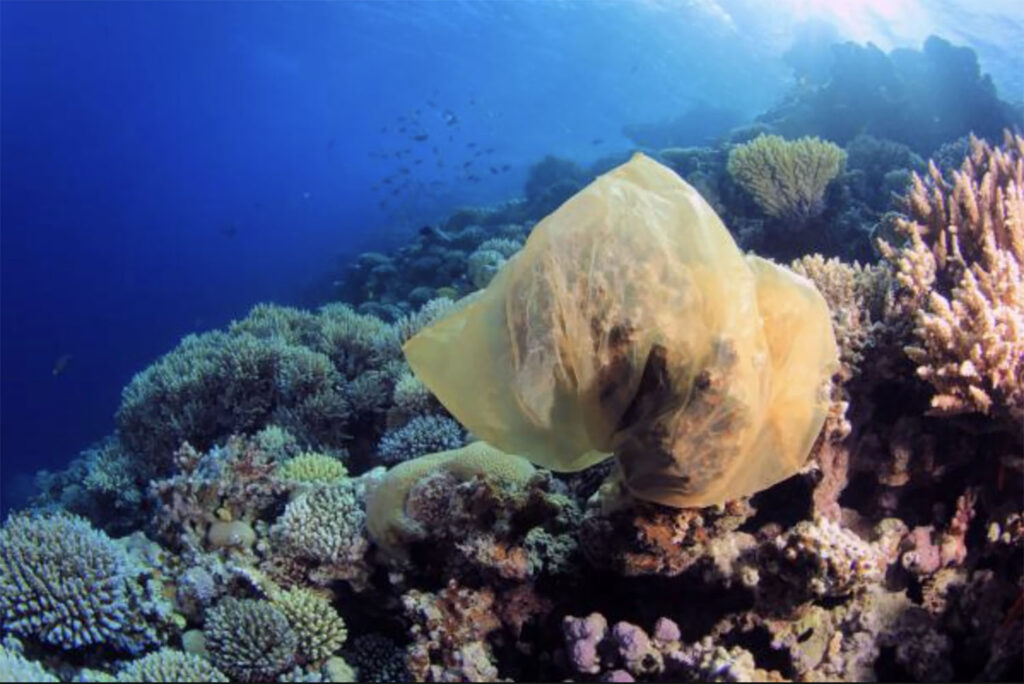By Sophie Roback, Alliance Intern from Colorado College ’24
Marine biologist Hudson Pinheiro went diving off of the coast of the Philippines with the goal of discovering new species of fish, but instead the most eye-opening find of his dive was the abundance of plastic “smothering the coral reef where the fish were living,” according to NPR. After several years of diving with fellow researchers, Pinheiro’s team found that around 90% of the coral they surveyed was covered in plastic, making it 20 times more likely to contract diseases according to a recent study in Science.
The team found there were concerning amounts of discarded fishing gear, specifically in the deeper reefs where the most plastic was found overall. According to WWF, fishing gear makes up 46% of the plastic found in the Great Pacific Garbage Patch. Many shallow fishing areas are overfished, so fishers have moved to deeper reefs in order to catch the same amount. According to Pinheiro, low to middle-income countries often have the most plastic pollution “due to limited resources allocated to waste management and improving fishing gear.”
In a recent study published in Fish and Fisheries, scientists found that “more than 100 million pounds of plastic pollution enters the ocean each year from lost fishing gear,” according to The Nature Conservatory. This discarded gear can continue harming and killing species such as sharks, dolphins, and turtles for years in an process known as ghost fishing.
“In addition to ghost fishing, derelict gear can transfer toxins and invasive species, distribute microalgae that may cause harmful algal blooms, alter and damage coastal and marine habitats, disrupt navigation and other fishing activities, reduce the socioeconomic value of coastal and nearshore areas, and break into microplastics which pass through the food chain,” says Eric Gilman, a coauthor of the study.
Chelsea Rochman, an ecologist studying plastic pollution tells NPR that “we need to be thinking about how higher income countries can help lower income countries pay for their solutions.” Pinheiro highlights the need specifically for regulations regarding single-use plastics and improved trash collection. Following his research, he plans on working closely with fishing communities to make policy recommendations and create more sustainable fishing tools.

